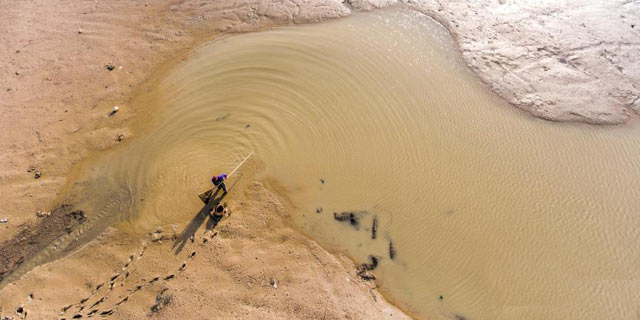Eastern Europe nations buoyed by progress
As summit with China nears, CEE countries are encouraged that recent congress confirmed initiative's longevity
Last month, all eyes were directed toward Beijing, where the 19th National Congress of the Communist Party of China convened. Before one might ask why such an event deserved to be the center of interest for the entire world, it is important to underline the distinction between this particular party and others worldwide: The Party, with almost 90 million members, is the most powerful in the world.
But another important fact that should be underlined is that General Secretary Xi Jinping in 2013 initiated the renewal of the historical Silk Road by introducing the Belt and Road Initiative. It aims to connect countries throughout the world that willingly accept cooperation based on the principles of joint discussion, co-construction and sharing; work to create an open, inclusive, balanced and benefits-sharing framework for regional economic cooperation; and practice the new approach of sharing power and responsibility as well as pursuing benefits and righteousness.
The Belt and Road vision has, since the initiative was proposed, increasingly become reality, so it was not unusual that the 19th National Congress decided to enshrine it in the Party's Constitution. It is stated that China will actively promote international cooperation through the Belt and Road Initiative, hoping to achieve policy, infrastructure, trade, financial and people-to-people connectivity. For that purpose, a new platform for international cooperation must be built in order "to create new drivers of shared development".
Along that line, China will support multilateral trade regimes and work to facilitate the establishment of free-trade areas and build an open world economy. At the same time, China remains committed to strengthening friendship and cooperation with other countries on the basis of the Five Principles of Peaceful Coexistence, and to forging a new form of international relations featuring mutual respect, fairness, justice and win-win cooperation.
The decision to place Belt and Road in the Party's Constitution, and to give it longevity, was taken as an act of encouragement by those who have put much hope in the initiative as a new platform capable of healing and then, on the basis of mutually beneficial cooperation, securing long-desired economic growth and decreasing disparities of different types. Among those taking heart are Central and Eastern European countries.
This act of confirmation of China's long-term strategy in further development and realization of Belt and Road was an excellent signal for CEECs, which have been anticipating the 6th China-CEEC Summit, to be held in Budapest at the end of this month. It is expected that new project ideas will be discussed and eventually approved.
The political elites of the CEECs should approach this summit as an excellent opportunity for making medium-to long-term decisions or, at least, for setting goals necessary for ensuring sustainable and stable economic development. A basic tool for such development is enhancement of practical cooperation, using good political relations to work on discovering economic complementarities that could be used to boost sustainable growth.
Without intending to deny the significance of infrastructure projects, I believe the time has come for other types of projects. CEECs should, in their talks with China, insist on an innovative approach that will lead to expansion of regional cooperation by promoting unimpeded trade and investment facilitation, increasing the speed of and raising the quality of regional economic flow, and enhancing monetary circulation.
A win-win strategy is achievable, but it will require goodwill and sincere commitment to share responsibilities in adopting plans and measures for mutually beneficial progress of the region.
The author is head of the regional center for the Belt and Road Initiative at the Institute of International Politics and Economics in the Republic of Serbia. The views do not necessarily reflect those of China Daily.









